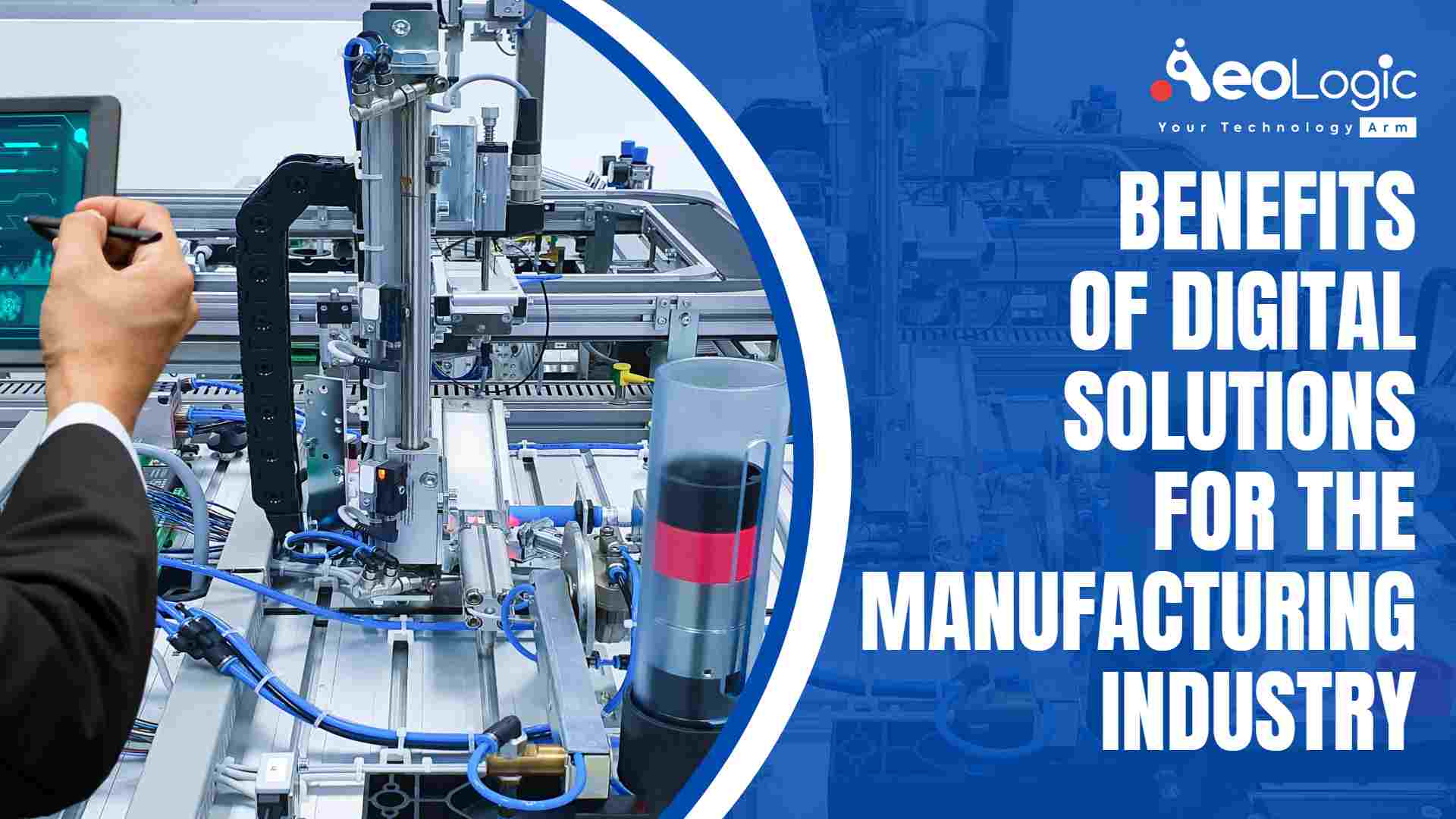What is Digital Manufacturing?
The process of utilizing computer systems for supporting and improving manufacturing operations. The benefits of digital solutions for manufacturing tools (often cloud-based) can connect and simplify processes across the production cycle. To create a ‘digital thread’ that integrates manufacturing operations for streamlining and enhancing design, production, servicing, and more.
The benefits of digital solutions for manufacturing are used for simulating and modeling processes so that they can be optimized, facilitating businesses to decrease operating costs, speed up production, and enhance cohesion between different stages of the manufacturing process by more seamlessly pairing them.
Digital tools help in allowing manufacturers to centralize and manage the entire manufacturing process in one software platform, opening up opportunities to collect and analyze data across the digital manufacturing lifecycle.
This data is enabling manufacturers to determine where things are being slowed down, which parts of the production line require maintenance, and how much demand there is for a particular product, all in real-time, so the business can act and adapt on the fly.
Also read: Role of Digital Transformation in Manufacturing
What Are the Different Types of Digital Manufacturing?
If businesses move towards digital transformation, they can enjoy certain benefits of digital solutions for manufacturing businesses. In addition, there are three major areas where organizations use digital manufacturing: product lifecycle, smart factory, and value chain management.
Product Life Cycle
In the product life cycle, starts with engineering design and goes toward sourcing, production, and servicing. Here the digital tools can make it easier to restructure design specifications, forecast raw materials demand, and offer better servicing to customers.
Smart Factories
Smart factories incorporate machines, sensors, and tools for gathering real-time data that can be turned into insights that augment the efficiency of your processes. Insights can then be used to transform processes and controls to increase productivity and reduce costs.
Value Chain Management
The area of value chain management is focused on minimizing the number of resources required for running a manufacturing operation without cutting any corners. For instance, digital tools help in allowing companies to see in real time. Where they can scale back inventory for freeing up cash flow.
Benefits of Digital Solutions for Manufacturing Industry
You can now observe the benefits of digitizing manufacturing and what digital production can provide. On top of what we’ve already mentioned, digital tools are able to allow a level of precision and automation that virtually removes errors in the production process. Also, it saves on manual work by automated paper-based processes that manufacturers have probably relied on for many years.
Furthermore, digital manufacturing comes with a level of agility that helps in supporting design changes to in real-time. Without having the need to shut off the production line and lose revenue. Along with the advantage of being able to make virtual manufacturing environments that enable designers to test a simulated process before spending money and time on physical implementation.
By allowing manufacturers to build in a preventative maintenance program that takes advantage of sensors and advanced data collection, maintenance costs can be significantly reduced.
Furthermore, digital manufacturing solutions are not only about optimizing processes. It also brings crucial advantages to the design phase. Specifically in introducing 3D modeling software for assisting in machinery design, engineering, floor layouts, and production flows.
The ability for creating complex designs and highly optimized processes inexpensively through a screen before shifting them into production is enabling manufacturers to be much more experimental and creative
Uses of Digital Manufacturing Systems
And for the creation of pretty much any product that demands a manufacturing process to bring it into the world. Some of the most well-known and proven use cases for digital manufacturing are the following:
- Incorporating software linked to sensors that help in reporting on product quality in real-time, allowing businesses to keep an eye on the defect rate so they can tune the process as required.
- Adding smart technology to conveyance for automating the flow of materials in the most efficient way possible, enabling accelerated production and time to market while staying free of errors and bottlenecks.
- Adjusting production and inventory on the fly as the customer requires to evolve and fluctuate and tracking assets in real-time as they move along the supply chain.
Also read: Role of 3D Printing in the Manufacturing Industry
Unleashing the Full Potential of Digital Solutions
In this article, we have uncovered the benefits of digital solutions for manufacturing industry. Digital manufacturing presents exciting possibilities for product developers and manufacturers alike. Unlike iterative developments which have aided in streamlining workflows and mitigating errors. It has the capability for transforming how we evaluate, design, produce, and improve products.
Digital Manufacturing will overturn many industries and bring more proficiencies to workflows and production lines. Which are enabling manufacturers to connect the engineer’s desk to the shop floor. We can only project that more capable and robust technologies will continue to be released. To transform and improve digital manufacturing.
FAQs
What is the role of digital solutions in the manufacturing industry?
Production planning, preventive maintenance, quality control, and machine inspection are some of the applications which are serving with the help of artificial intelligence.
What are the 3 major aspects of digital manufacturing?
The three major aspects of digital manufacturing are as follows:
- Product life cycle
- Smart factory
- Value chain management










